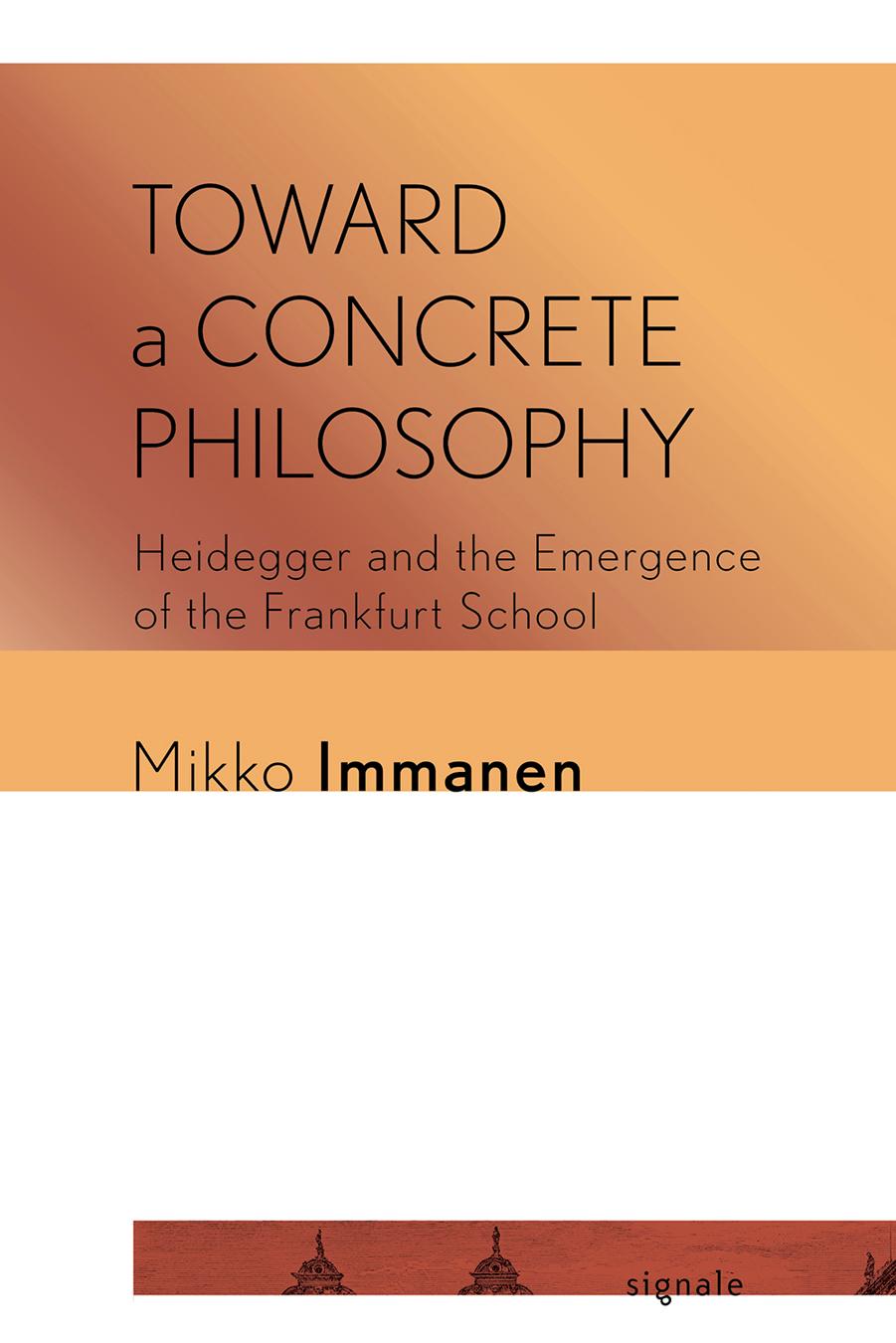Toward a Concrete Philosophy: Heidegger and the Emergence of the Frankfurt School by Mikko Immanen

Author:Mikko Immanen [Immanen, Mikko]
Language: eng
Format: epub, pdf
Tags: Philosophy, Movements, Critical Theory, History, Europe, Germany, Individual Philosophers
ISBN: 9781501752384
Google: JkHJDwAAQBAJ
Publisher: CornellUP
Published: 2020-11-15T21:05:55+00:00
Adornoâs Rejection of the Question of the Human Being
The question of the human being, Adorno maintained, was âan idealist demand, that of an absolute beginning, as only pure thought by itself can accomplish.â Despite post-Husserlian phenomenologyâs polemics against abstract Cartesianism, its question of human essence was itself âa Cartesian demand, which believes it necessary to raise thinking to the form of its thought presuppositions and axioms.â If philosophy used its energies to uncover these axioms, however, Adorno claimed, it can âreach them only formally, and at the price of that reality in which its actual tasks are laid.â52 Still, leaving the problem of formalism aside, one could ask why Adorno did not answer this question with his own conception of the human being. Moreover, did not Adornoâs critical theory presuppose, out of logical necessity, some sort of understanding of what it means to be human?
The discussion on âreligious Urmotivesâ in 1931 leaves no doubt that Adorno certainly believed that human beings could break free from natural and social constraints to a far greater degree than Heidegger thought was possible. But to defend this materialist conviction, Adorno refused to follow Herbert Marcuse, who had argued against Heidegger that human beings could develop from being thrown objects of history to its active subjects through socialist revolution. Martin Jay points out that Adorno had good reasons to be cautious about the path taken by Marcuse, and Lukács before him. In setting the paradigm for Western Marxism, Lukács had drawn on Hegel to argue that the human being was not just the object but also the subject of history. Relying on a reading of Giambattista Vicoâs verum factum principle, according to which the human being knows best that which she has made, Lukács sought to raise the working class to âclass consciousnessâ of the fact that history was a human creation. Adorno saw several downsides in advancing materialist social criticism in this way. First, Lukács used the idea of class consciousness to legitimate Bolshevism, which meant surrendering the working class and critical intellectuals under authoritarian party rule. Second, Lukácsâs position was in danger of falling back to idealism because it held its insight into history as a new answer to the age-old question of the thing-in-itself. Third, Adorno was afraid that the legitimate emphasis on historical practice as the means to undo alienation could turn into a celebration of material labor as human essence. By refusing to articulate a socialist conception of the human being, Adorno saw himself defending Marxâs dream of the realm of freedom from turning into a realm of production for productionâs sake.53
Martin Jay and Susan Buck-Morss underscore that a crucial element in Adornoâs thought was his concern with the âfirst nature.â This did not refer to any irrational primal forces, advocated by Lebensphilosophie, but to the world of suffering bodily creatures desiring fulfillment and happiness. Marxism was supposed to be the prime guardian of these concerns. Yet, orthodox Marxismâs overemphasis on an increase in the forces of production as an
Download
Toward a Concrete Philosophy: Heidegger and the Emergence of the Frankfurt School by Mikko Immanen.pdf
This site does not store any files on its server. We only index and link to content provided by other sites. Please contact the content providers to delete copyright contents if any and email us, we'll remove relevant links or contents immediately.
The remains of the day by Kazuo Ishiguro(8977)
Tools of Titans by Timothy Ferriss(8369)
Giovanni's Room by James Baldwin(7330)
The Black Swan by Nassim Nicholas Taleb(7109)
Inner Engineering: A Yogi's Guide to Joy by Sadhguru(6785)
The Way of Zen by Alan W. Watts(6601)
Asking the Right Questions: A Guide to Critical Thinking by M. Neil Browne & Stuart M. Keeley(5760)
The Power of Now: A Guide to Spiritual Enlightenment by Eckhart Tolle(5758)
The Six Wives Of Henry VIII (WOMEN IN HISTORY) by Fraser Antonia(5501)
Astrophysics for People in a Hurry by Neil DeGrasse Tyson(5182)
Housekeeping by Marilynne Robinson(4436)
12 Rules for Life by Jordan B. Peterson(4299)
Double Down (Diary of a Wimpy Kid Book 11) by Jeff Kinney(4261)
Ikigai by Héctor García & Francesc Miralles(4247)
The Ethical Slut by Janet W. Hardy(4242)
Skin in the Game by Nassim Nicholas Taleb(4239)
The Art of Happiness by The Dalai Lama(4125)
Skin in the Game: Hidden Asymmetries in Daily Life by Nassim Nicholas Taleb(3992)
Walking by Henry David Thoreau(3953)
